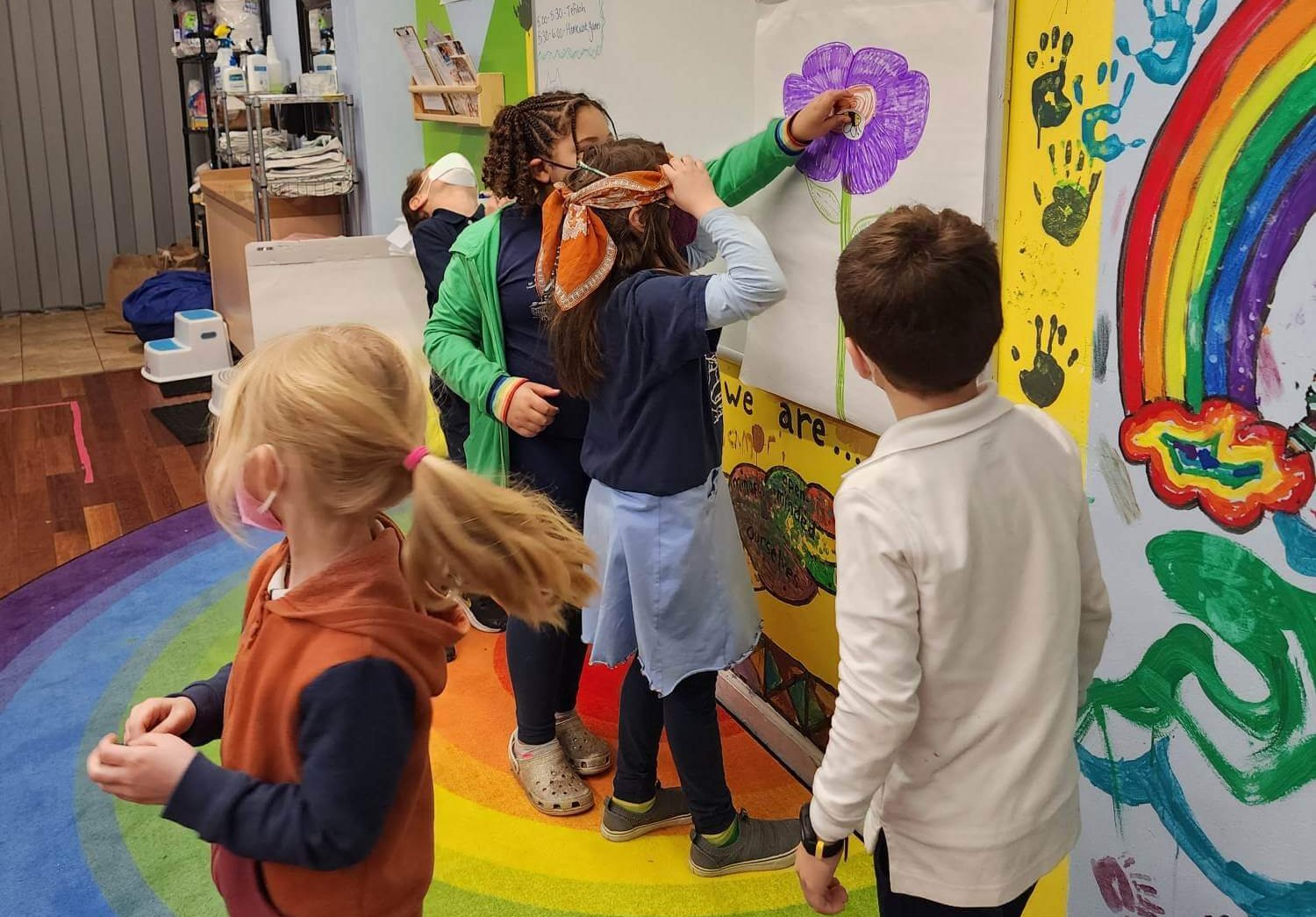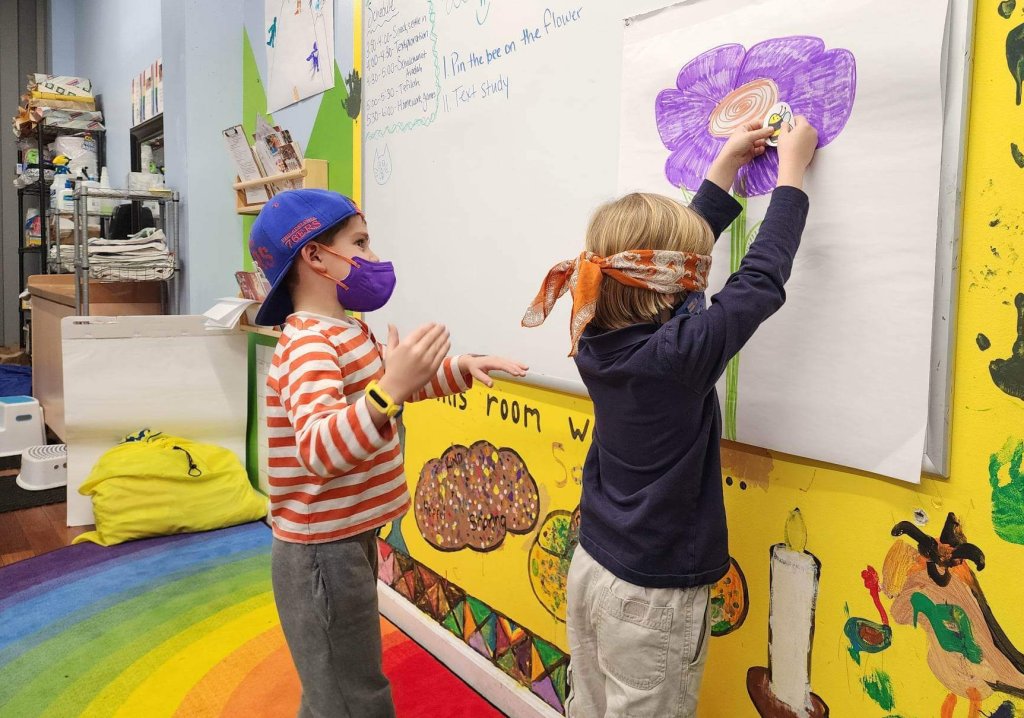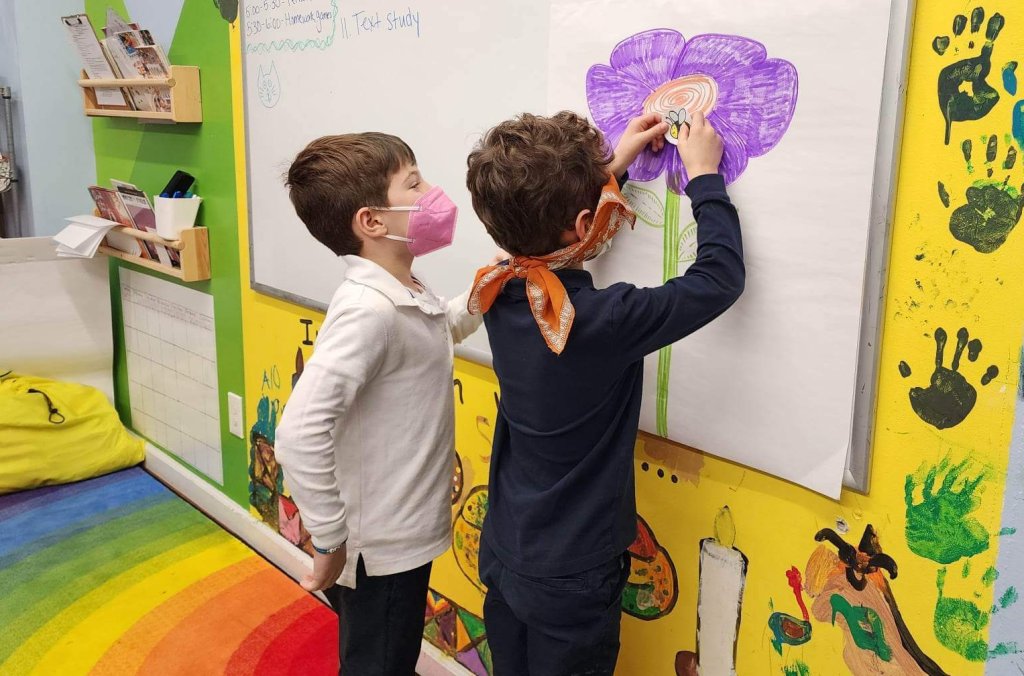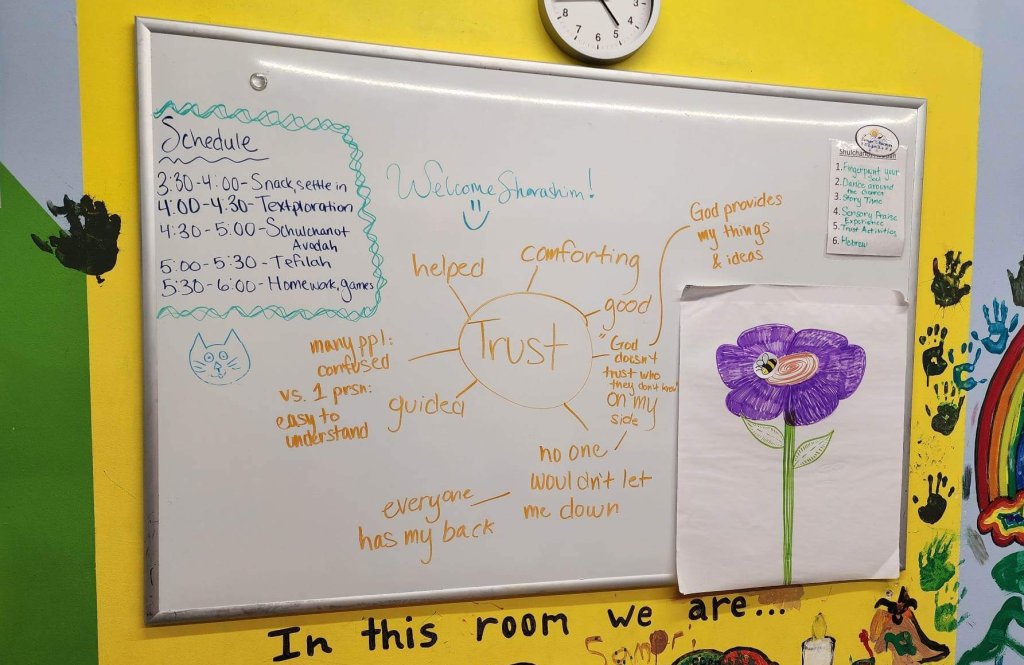
As we deepen our understanding of praise in this unit, the Shorashim (1st-2nd grade) have come to know that trust is a foundational principle of giving and receiving praise. To explore this idea, we practiced trust with those in our own classroom through a blindfolded group exercise. Through this experience, we realized just how complex and fragile trust is, even among people we’re familiar with. This allowed us to better acknowledge how trust feels in all its variations.
The kids were eager to get started as soon as they walked into the classroom, as several of them immediately noticed the large image of a flower on the whiteboard, with a little bee stuck to its center. The task was simple: stick the bee on the flower with the help of a peer to guide you. The kids sprang into action. After pairing up, they each yearningly waited for their turn to pin the bee on the flower. One by one, we blindfolded the kiddos, placed them in front of the flower, and stepped back to observe how their partner chose to guide them. Some of the pairs used their voices to guide their blindfolded friends. In this case, the kids used varied language to help their peer reach their goal, telling them to move “forward” or “front”, “up” and “back”. Others held their partner’s hand and led the bee to its target, much like a claw machine at an arcade. Some kids used a combination of these modalities. In the end, every pair’s bee landed successfully on the flower and celebration ensued.

After every pair had had their turn, the kids were so enamored with the activity that they insisted on doing it again. As educators, we saw this as an opportunity to up the stakes. This time, when each kid approached the flower, they were guided by a group of peers rather than one. In this instance, the kids relied on the modalities they’d previously used. This meant that some kids pinned the bee to a soundtrack of their peers energetically directing them all at once in a sort of helpful chaos. Other kids found that many of their peers were holding their hands at once, each guide with their own path to success in mind. Some kiddos experienced both.
At one point, we got to take part in the exercise ourselves. Here, half of our Shorashim educator team, Sarah Drozda, shares their perspective:
Doing this activity with a kiddo made me realize how putting my faith in someone else makes a nerve-wracking experience so much easier. When I took off my glasses and blindfolded myself I felt really out of place and uncomfortable. That feeling didn’t last long when my partner put her hands on my shoulder and steadied me before leading the way. I immediately felt more at ease and with her guidance, was able to pin the bee exactly where it needed to be. I would not have been able to pin the bee on the flower without trusting this learner to lead me in the right direction.

After each kid had successfully delivered the bee to its destination again, we asked them which experience they preferred. Everyone was in high spirits after we sat back down. It was heartwarming to see that many of the kids had found joy in experiencing trust! Some kids very adamantly preferred to be guided by one person, describing the experience of being guided by a group as confusing and overwhelming. In contrast, the guidance of one friend was easier to understand. Others enjoyed the group dynamic more and reflected that it felt good to know that “everyone has my back.” Now, it was time to reflect. Overall, the kiddos felt positive about the experience. Several shared that they felt a sense of community, especially when guided by multiple peers at once. They felt as though “no one would let [them] down” and “everyone was on [their] side”. They determined that trust makes them feel guided, helped, and comforted.
Then, we took the discussion a step further. When asked about trust in God, many of the kiddos responded positively, sharing that they do feel like they can rely on God in this way. One kiddo shared that they trust God to provide for them, whether that’s material objects or their own original ideas. On the other hand, many of the kids felt like God doesn’t trust them in return. We discussed how trust is an exchange and therefore requires both giving and receiving from everyone involved. Then one kid remarked that “God doesn’t trust who They don’t know.” We wanted to explore this more so we asked: Do you trust people that you don’t know? Some kids simply said no. Others explained that trust is more complicated than that. For instance, they would trust a person who is trusted by someone they do know and trust like a friend of a friend.
When we prepared this activity, we had no idea how eye-opening the experience would be. We learned collectively that trust is much more nuanced than we previously thought. Instead, it has many faces and some forms of trust are more substantial than others. Sometimes, history and familiarity are foundational. Other times, the right situation born from spontaneity is enough to bear new trust. One thing is certain, after facilitating this insightful experience, this little community we’re building with the Shorashim has a lot of trust and it’s a privilege to be a part of it.

